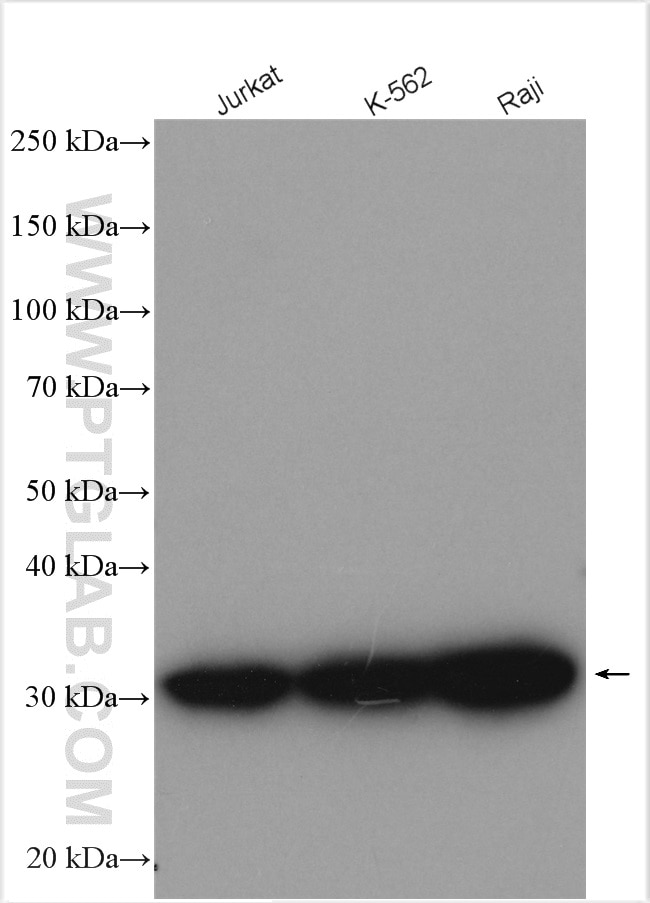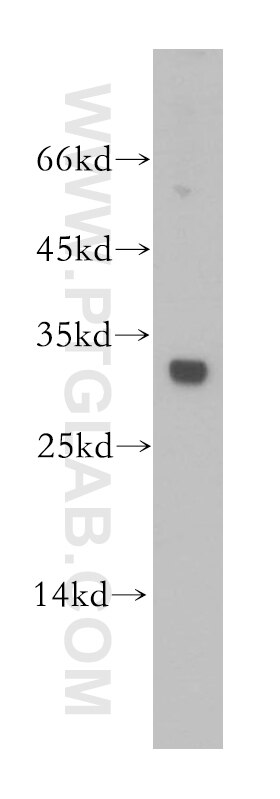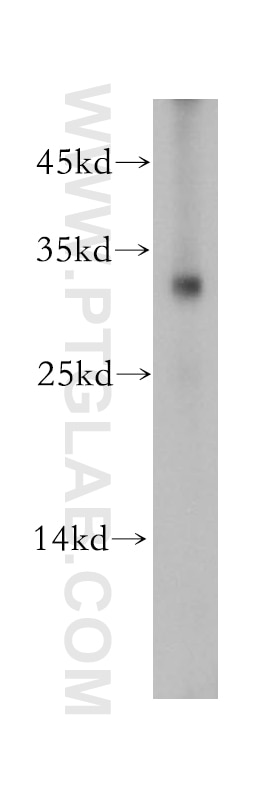Nucleoside phosphorylase Polyklonaler Antikörper
Nucleoside phosphorylase Polyklonal Antikörper für WB, ELISA
Wirt / Isotyp
Kaninchen / IgG
Getestete Reaktivität
human, Maus, Ratte und mehr (1)
Anwendung
WB, IF, ELISA
Konjugation
Unkonjugiert
Kat-Nr. : 18009-1-AP
Synonyme
Geprüfte Anwendungen
| Erfolgreiche Detektion in WB | Jurkat-Zellen, K-562-Zellen, Raji-Zellen, U-937-Zellen |
Empfohlene Verdünnung
| Anwendung | Verdünnung |
|---|---|
| Western Blot (WB) | WB : 1:1000-1:4000 |
| It is recommended that this reagent should be titrated in each testing system to obtain optimal results. | |
| Sample-dependent, check data in validation data gallery | |
Veröffentlichte Anwendungen
| WB | See 5 publications below |
| IF | See 1 publications below |
Produktinformation
18009-1-AP bindet in WB, IF, ELISA Nucleoside phosphorylase und zeigt Reaktivität mit human, Maus, Ratten
| Getestete Reaktivität | human, Maus, Ratte |
| In Publikationen genannte Reaktivität | human, Hund, Maus, Ratte |
| Wirt / Isotyp | Kaninchen / IgG |
| Klonalität | Polyklonal |
| Typ | Antikörper |
| Immunogen | Nucleoside phosphorylase fusion protein Ag12507 |
| Vollständiger Name | nucleoside phosphorylase |
| Berechnetes Molekulargewicht | 289 aa, 32 kDa |
| Beobachtetes Molekulargewicht | 32 kDa |
| GenBank-Zugangsnummer | BC106074 |
| Gene symbol | Purine nucleoside phosphorylase |
| Gene ID (NCBI) | 4860 |
| Konjugation | Unkonjugiert |
| Form | Liquid |
| Reinigungsmethode | Antigen-Affinitätsreinigung |
| Lagerungspuffer | PBS with 0.02% sodium azide and 50% glycerol |
| Lagerungsbedingungen | Bei -20°C lagern. Nach dem Versand ein Jahr lang stabil Aliquotieren ist bei -20oC Lagerung nicht notwendig. 20ul Größen enthalten 0,1% BSA. |
Hintergrundinformationen
Purine nucleoside phosphorylases (PNP) is a ubiquitous enzyme of purine metabolism that functions in the salvage pathway, including even those of protozoan parasites, thus enabling the cells to utilize purine bases recovered from metabolized purine ribo- and deoxyribonucleosides to synthesize purine nucleotides (PMID: 11337031, 23332162). PNP deficiency in humans leads to an impairment of T-cell function, usually with no apparent effects on B-cell function. hPNP is widely distributed in various tissues and cells of the human body, with the highest activity in kidney, peripheral lymphocytes and granulocytes (PMID: 38701712).
Protokolle
| PRODUKTSPEZIFISCHE PROTOKOLLE | |
|---|---|
| WB protocol for Nucleoside phosphorylase antibody 18009-1-AP | Protokoll herunterladen |
| STANDARD-PROTOKOLLE | |
|---|---|
| Klicken Sie hier, um unsere Standardprotokolle anzuzeigen |
Publikationen
| Species | Application | Title |
|---|---|---|
J Hazard Mater Integrative proteomics and metabolomics approach to elucidate metabolic dysfunction induced by silica nanoparticles in hepatocytes. | ||
J Biol Chem Patient-derived organotypic tissue cultures as a platform to evaluate metabolic reprogramming in breast cancer patients | ||
Int Immunopharmacol Spermidine attenuates monocrotaline-induced pulmonary arterial hypertension in rats by inhibiting purine metabolism and polyamine synthesis-associated vascular remodeling | ||
J Ethnopharmacol Diosmetin-7-O-β-D-glucopyranoside from Pogostemonis Herba alleviated SARS-CoV-2-induced pneumonia by reshaping macrophage polarization and limiting viral replication |




